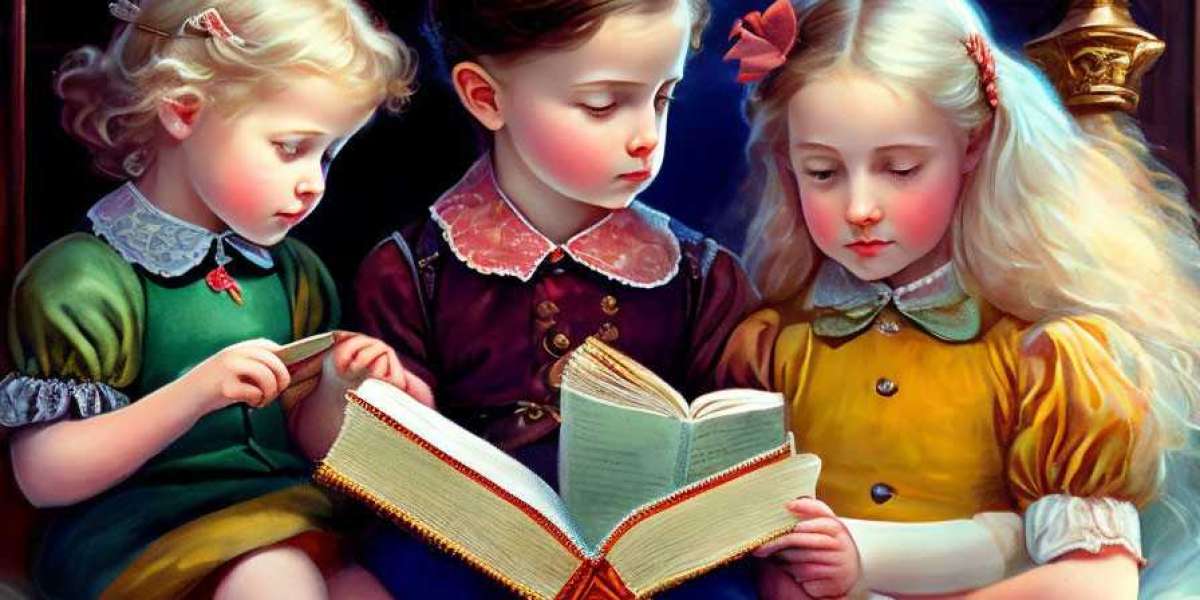In today's fast-paced digital age, where the allure of video games and social media can easily captivate young minds, encouraging children to read classic literature might seem like a quaint notion. However, delving into the timeless pages of classic books offers invaluable benefits that go beyond the instant gratification of modern entertainment. In this article, we will explore the significance of exposing children to classic literature and how it can shape their intellectual and emotional development.
Building a Strong Foundation for Language Skills
One of the most compelling reasons to introduce children to classic literature is its unparalleled ability to enhance language skills. Classic novels are a treasure trove of rich vocabulary, intricate sentence structures, and diverse writing styles. By immersing themselves in the eloquent prose of authors like Jane Austen, Charles Dickens, or Mark Twain, young readers naturally absorb the nuances of language. This exposure helps expand their vocabulary, improve grammar, and foster a deeper appreciation for the beauty of the written word.
Nurturing Critical Thinking and Analytical Skills
Classic literature often presents complex characters and intricate plotlines that require readers to think critically and analyze situations from different angles. Encouraging children to engage with these narratives helps them develop essential cognitive skills. Through discussions of moral dilemmas in works like "To Kill a Mockingbird" or the symbolism in "The Catcher in the Rye," young readers learn to question, evaluate, and form their own opinions—a crucial skill set for both academic and real-world success.
Fostering Empathy and Understanding
Many classic novels explore themes of human nature, societal issues, and the human condition. As children immerse themselves in these stories, they gain insight into different cultures, historical contexts, and the diversity of human experiences. This exposure fosters empathy and a broader understanding of the world, helping children become more compassionate and open-minded individuals. It's through classic literature that they can walk in the shoes of characters from different backgrounds and eras, enhancing their ability to relate to others and appreciate different perspectives.
Igniting Imagination and Creativity
Classic literature often transports readers to fantastical worlds and historical epochs. The vivid descriptions and imaginative storytelling found in classics like "Alice's Adventures in Wonderland" or "The Lord of the Rings" ignite the fires of creativity in young minds. Encouraging children to explore these realms fosters a love for imagination, which can inspire them to create their own stories and embark on the journey of writing.
The Role of Book Writing Services
In today's digitally connected world, aspiring writers often seek assistance from book writing services to bring their literary dreams to life. These services offer professional guidance and support in turning ideas into well-crafted novels. Whether it's refining a manuscript, ghostwriting, or publishing assistance, book writing services play a pivotal role in helping writers achieve their goals.
Conclusion
In an era dominated by screens and instant gratification, encouraging children to read classic literature is an investment in their intellectual and emotional development. Classic books not only enhance language skills and critical thinking but also foster empathy, ignite creativity, and prepare young minds for the challenges of the future. So, let's turn the pages of timeless classics alongside our children, for in those stories, we find not only the wisdom of the past but also the seeds of a brighter literary future.
In the realm of children's book writing services, there exists a parallel avenue for those who dream of crafting their own stories. With the right support, these budding authors can share their unique perspectives with the world, enriching our literary landscape for generations to come.







